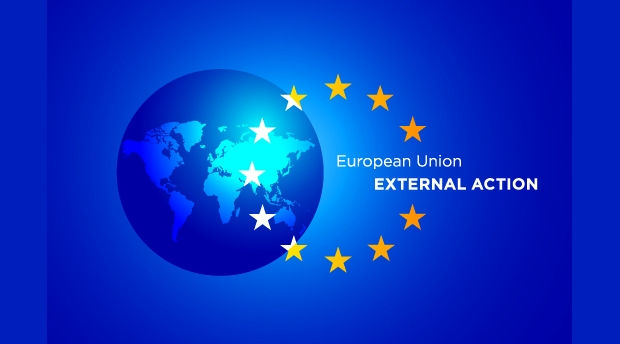CSB Pilot Course – The program topics at Euro College and a future full Master Program
- csbprojectitaly
- Apr 20, 2020
- 4 min read
Since the COVID-19 outbreak in the Republic of North Macedonia, Euro College of Kumanovo has replaced the classical way of teaching the CSB Pilot Course with the online classes by using the Google Meet platform. The course started with a series of lectures on Alternative Economics concepts, Genealogy of Economic Thought, Process Philosophy and Economy, Global Political Economy etc.
The students’ interest in following the classes from home was better than expected. In addition, we decided to record the lessons and then to put them on the platform, so each student from Euro College and not just the participants of the CSB pilot course can have access to it.
The course covers the following topics:
I. Genealogy of Economic Thought which explains the philosophical roots of the concept of the Economy from the Antiquity until modern days;
II. Ethics for the Sustainable Economy is a continuation of the previous topic specifically centered on the issue of Ethics as the basic activity favored by Antique philosophers encompassing all other activities like trade, politics art etc.;
III. Global Political Economy exposes the steady rise and dominance of the economical processes over all other areas of modern living. The financial capitalism appears to be the sole market force that is powerful enough to influence the global movement of goods and labor-force;
IV. Alternative Economics introduces several influential schools that offered new refreshing ways on how to deal with the economic issues in an unorthodox way;
V. Economic Anthropology has been crucial addition to the economic thought in the last few decades. The investigation of the economic activity of the primitive societies offers an invaluable understanding of the totality of human activities that are for some reason neglected nowadays. They might offer solutions to the crises as well;
VI. Excesses/Limits of Economy: Gender, Affect and Power The investigation of the excesses of human experience reveals the ways the dominant scientific/economic/political power relations limit the subversive anti-productive production of the affective, the heterogeneous and in general, of the difference in the society. The course investigates why some productive circulation was approved and why some was not;
VII. General Systems Theory, Process Philosophy and Economy discloses the predominance of the communication economy as a safety valve, set to support technologically the incessant opening and closing of the system of the circulation of the capital. The insistence on chaos theory, black swans and non-linear logic reveals not only the way capital operates nowadays but also the safeguard measures to be accounted for when it fails to produce the smooth transition of the processes;
VIII. Environmental Economy deals with the holistic approach between man and the nature and the need for the re-establishment of the harmonious relation between the two;
IX. Cultural Studies and Materialist’s Philosophy returns back to the idea of the inherent contradictions of the capitalist’s society. In the light of the 19th century materialist philosophy, the incongruence between the means of production and the relations of production is evaluated following the introduction of the new technological revolutions. The current rise of the AI technological revolution produces yet again a serious rift between the operations of the financial capital and its proper regulation in the society;
X. Technology, Abstraction and the Spectacular Society explains the way modern technological revolutions were systematically criticized by both the materialist philosophy and the avant-garde movements across Europe. The conflict is still raging on;
XI. Emerging Businesses for the Emerging Technologies offers novel ways of making business in the era of unprecedented technological innovations. Digitalization, door to door supply chain management and robotization, to name the few, will be the new territories soon to be invaded by creative businesses of the future;
XII. Doing Business Across Different Realities starts from the fact that the era of a stable economic subject that can safely predict the market developments and act accordingly in a reasonable and practical manner is definitely over. Rather, the uncertainty and the exponential movement of the market tendencies leaves Homo Economicus more in a position of an observer of the fluid reality around that of an active participant of the process. The art of predicting the economic realities in the future might require more mysticism and magic than sound figures.
When the situation with COVID-19 stabilizes, Euro College decided, to start the process of formal recognition by the Ministry of Education. The idea is not just to recognize the individual course that we already had but the whole study process as a new Master program. The new program of Cultural Studies in Business will be an innovative program based on our previous experience in teaching the subject and on the skills and knowledge gained during the implementation of this Erasmus project. Students can explore different topics from Economics, Social Sciences and Humanities disciplines and become a specialist in Cultural Business Studies with 60 ECTS credits. This idea was fully supported by both our faculty and the students.
CSB Macedonian team is continuing with the online classes, thus further expanding the idea of the program.
Article
written by Prof. Marija Stojanova, Team Leader and lecturer on behalf of the "CSB Pilot Course" core activity of the Erasmus Plus K203 Project "Cultural Studies in Business". Researcher in Human Resources, Business Economics and Business Administration - Department of Business Administration at Euro College of Kumanovo (Republic of North Macedonia).
.jpg)
















Comments